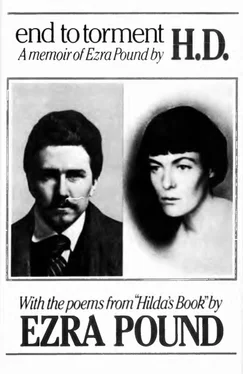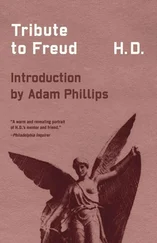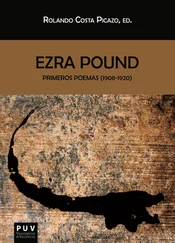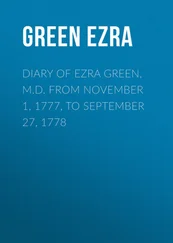Joan just came in for my letters; to my surprise, she remembers The Gadfly —“Rather before my time, mother had it.” She found the author, Ethel Voynich, in my Reader’s Encyclopedia . She does not remember any circus or fair, but she has the same impression that I have of some grim, involved, political tragedy.
I see from Eva Hesse’s note in the German-English Ezra Pound, Dichtung und Prosa 24that it is Wabash College, Indiana, that was the scene of “this girl he found” that Erich spoke of. “Were you jealous of this girl he found who slept in his bed?” Ezra was only four months there. But I must have addressed a good many letters to Wabash College, Crawfordsville, Indiana. I confused it with Hamilton College, Clinton, New York, where he was a student for two years. Is this important?
It perhaps helps to clarify the cloud of memories. It is the emotional content that matters. I wrote, “The perfection of the fiery moment can not be sustained — or can it?” Erich says of himself that he is the Spiegel , the mirror, the burning-glass that “catches the light all round.” Yes, he gets the situation ins rechte Licht , but I can not explain to him how painful it is to me at times to retain the memory of the “fiery moment.”
Maybe Erich catches it in the Spiegel —but he has only to reflect it. I have to substantiate it.
March 19
I am walking on air, though I can hardly walk at all, due to a regrettable bone fracture. Over a year ago, I slipped on a small rug on an overwaxed, highly polished floor. Ezra wrote, “ ’ow did you ’appen to step on that thar soap”—or something of that sort. He kept writing, urging me to do some Greek translations. I found his letters almost indecipherable or untranslatable — and this made me and Richard Aldington too, to whom he was writing at the time, very sad. But the “actual” Ezra only manifested with the reading and re-reading of the “Weekend.” And now Joan has discovered a cache of his books, behind other books in my cupboard. So now we find the original Dichtung und Prosa , pencilled by Erich Heydt, 1954, in the H.D. and Imagist section.
The original lot of the early books must still be in London or with my friend Bryher in Vaud, but there is a ripe crop here; a huge Cantos volume, Rock Drill , American and English editions of Confucius , the Sophokles [Women of Trachis ] and several of the beautiful little English-Italian books of the Pesce d’Oro, Milan, sent me by Mary de Rachewiltz.

Facsimile of early manuscript poem with Ezra Pound’s “gadfly” signature
“Why are you so excited when you read these notes to me?” said Erich this afternoon. “I don’t know — I don’t know — it’s the fiery moment but it’s all so long ago.” “It has no time,” said Erich, “it’s the existentialist” (word that I can never cope with) “moment. It has no time, it’s out of time, eternal.”
March 21
I was baffled, puzzled, bewildered. I see references, in “Weekend,” to certain Canto omissions or black-outs. I must check on this. It is difficult to check up on separate sections, without becoming entangled in the whole. Soon after seeing some of these original or early Canto variations, in the Pounds’ Holland Place apartment in Kensington, opposite our own flat, we moved. Black-out. Just a memory of a shock at the look, the lines, the words on the newly printed pages that Ezra showed us. Mrs. Shakespear’s brother said, “Why must he write about things that we all do every day and don’t talk about.”
Chthonian darkness — the black-out. I don’t pretend to understand. We have gone through some Hell together, separately.
March 22
Am I mad then, or is he? I could not answer the question but handed the letter to Dr. Heydt to read. This was in the beginning when I did not know Erich Heydt so well. He laughed at the letter—“What does he mean by telling you to crawl out of your pig stye?” 25I didn’t know what Ezra meant. I don’t know now. I read in Motive and Method 26today of various Canto references to Circe. In time, I will look them up.
March 23
Piere Vidal, the troubadour of whom I have spoken, “dressed in wolf-skins for the love of Lady Loba de Peugnautier (whose name means wolf). …” I quote Sister M. Bernetta Quinn, O.S.F., from her contribution to the series of essays on the Cantos, Motive and Method . Sister Bernetta refers to this madness as “lycanthropy.” I follow her exposition, “The Metamorphoses of Ezra Pound,” with admiration and respect. Myself, I have so far, felt too involved in the legend to judge fairly, or rather to see clearly.
I see, but perhaps not clearly, the poet appropriating the attributes of the famous founder of Rome — or rather of the legendary Wolf (Lupus or Lupa) who rescued and saved that founder. Is our Pard or Panther a Savior, a Lover rather than an outlaw, an iconoclast? Was it love of the incomparable “Lady Loba” that lured him to Radio Rome and that in the end, was his undoing? But no and yes. He is far from lost. He is centralized and accessible. A thousand Ameisen , ant hill upon ant hill of provincial colleges, have had a curious insemination. Has this ever happened in the history of America or anywhere?
Lycanthropy, a kind of madness in which the patient fancies himself to be a wolf; Lycanthrope, a wolf-man; wolf, Greek lykos —I read in my Chambers dictionary. The word lykos , as a word, recalls the Lynx, so poignantly invoked in the famous section of the Pisan Canto LXXIX.
March 24
Then Frobenius; 27another mystery is partly solved in Motive and Method in an essay, “Pound and Frobenius” by Guy Davenport. Ezra kept writing me to get Frobenius. It was when I was in Lausanne, soon after Ezra was installed in St. Elizabeth’s. No bookshop had Frobenius and they seemed never to have heard of him. I imagined Frobenius as a Swede, a mystic, perhaps unconsciously relating him to Swedenborg and the early books that Ezra brought me. It turned out, after a number of letters between us, that he wanted me to get Frobenius for myself, not to send to him, as I had at first imagined. Now, I find that Frobenius was a sort of Kultur archeologist and that Ezra had at one time made a sort of Odysseus-Pound alter-ego of him. Frobenius had a connection with Frankfurt but of “incredible obscurity,” to use the phrase of the author of this essay. Ezra Pound and Carl Jung, the author states, were the chief enthusiasts for Frobenius’ work on primitive cultures.
We find oddly, then, another clue to Ezra’s divided loyalties. If Italy is the “Lady Loba,” the Lupa mother-symbol, is not Germany by way of Frobenius (the Odysseus of Ezra’s fantasy) the giant father? Of course, we need not remind our readers, if we ever have any, that his father’s name was Homer.
These clues that I personally find so fascinating are jeered at by the supersophisticated. I painfully got together some notes in this naif manner after being urged and urged to pay some tribute to the “Maestro” for a birthday (65?). The short article was judged “not suitable” but was not even returned to me. 28
March 25
There is the incident of the “Hilda Book.” I heard it was up for sale or had been sold. Is this a forgery or is it the Is-hilda set of poems that Ezra bound together in a parchment cover and gave me? Erich was very angry about the article. “You had no copy? But I thought you always made copies. Surely, this is a theft, a crime. Can you not get a lawyer to see to it? Why didn’t you at the time — and the ‘Hilda Book’—” of which I had just told him.
Читать дальше













